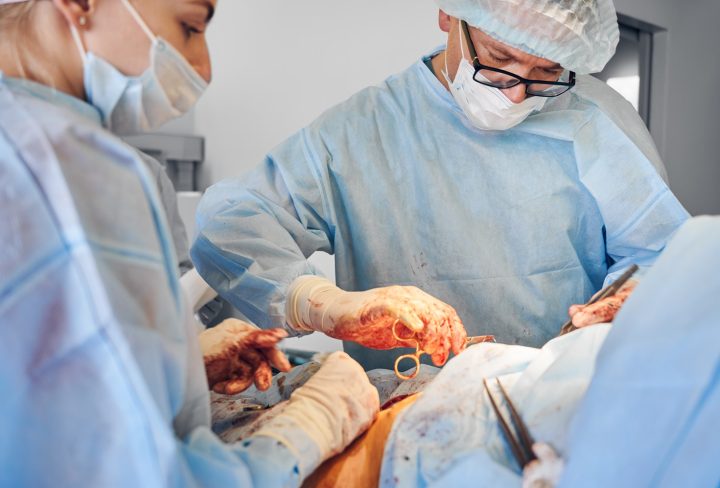A surgical procedure to treat gastroesophageal reflux disease (GERD), a condition where stomach acid flows back into the esophagus, causing symptoms such as heartburn, chest pain, and difficulty swallowing. The surgery involves wrapping the upper part of the stomach (fundus) around the lower esophageal sphincter (LES) to strengthen it and prevent acid reflux.
Why is laparoscopic fundoplication performed?
Laparoscopic fundoplication is performed when lifestyle changes and medications fail to provide adequate relief from GERD symptoms. It is also indicated for people who cannot tolerate long-term use of medications or who have complications from GERD, such as esophageal stricture or Barrett’s esophagus.
How to prepare for laparoscopic fundoplication?
The preparation for laparoscopic fundoplication is similar to other surgeries. Patients will need to undergo preoperative testing, such as blood work, imaging, and endoscopy. The surgeon will provide specific instructions on fasting and medication use before the surgery.
What to expect after laparoscopic fundoplication surgery?
Patients can expect to stay in the hospital for 1-2 days after laparoscopic fundoplication surgery. They may experience mild pain or discomfort in the abdomen, which can be managed with medication. The surgeon may also recommend a liquid or soft food diet for several weeks after the surgery.
Post-operative care after laparoscopic fundoplication
Patients should avoid heavy lifting and strenuous activities for several weeks after the surgery. They should also avoid alcohol, caffeine, and spicy or acidic foods, as these can worsen GERD symptoms. The surgeon will provide specific instructions on post-operative care and follow-up appointments.
Myths and facts about laparoscopic fundoplication:
Myth: Laparoscopic fundoplication is a risky surgery.
Fact: Laparoscopic fundoplication is a safe and effective surgery with low complication rates.
Myth: Laparoscopic fundoplication is a permanent cure for GERD.
Fact: Laparoscopic fundoplication can provide long-term relief from GERD symptoms, but lifestyle changes and medication may still be needed.
Myth: Laparoscopic fundoplication is only for severe GERD cases.
Fact: Laparoscopic fundoplication is indicated for people who do not respond to lifestyle changes and medications, regardless of the severity of their GERD symptoms.
FAQs:
How long does laparoscopic fundoplication surgery take?
The surgery usually takes 2-3 hours, depending on the complexity of the case.
Is laparoscopic fundoplication covered by insurance?
Most insurance plans cover laparoscopic fundoplication surgery, but it is best to check with your insurance provider to confirm coverage.
Can laparoscopic fundoplication be done on an outpatient basis?
In some cases, laparoscopic fundoplication can be done on an outpatient basis, meaning the patient can go home the same day as the surgery.

